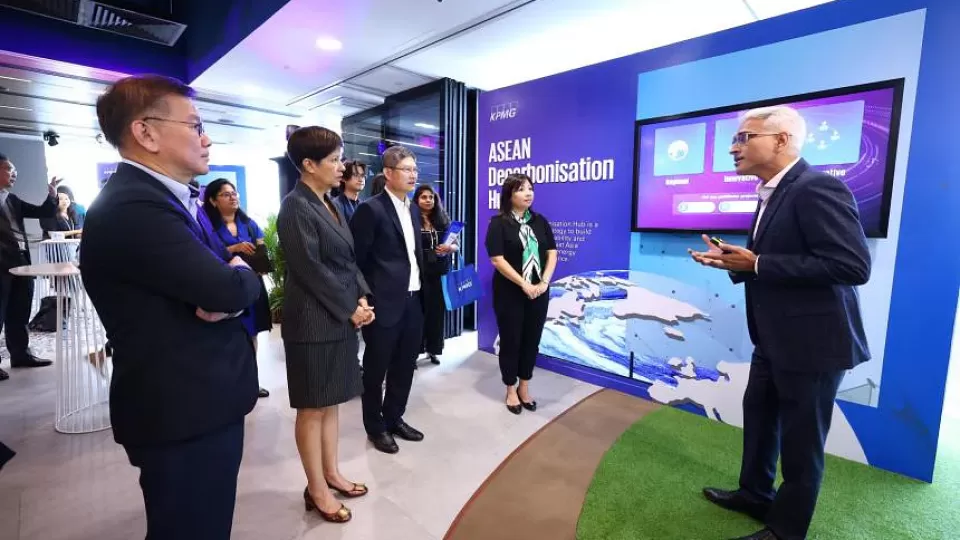November 15, 2022
SINGAPORE – An Asean decarbonisation hub was launched on Monday to speed up energy transition in the region and help to attract climate funding to carry out projects.
The hub’s launch coincided with the opening of audit, tax and advisory services firm KPMG Singapore’s new office on Monday in Asia Square Tower 2 in Marina View. The office spans 125,000 sq ft and occupies four floors.
To start off, the hub will focus on areas such as low-carbon and energy-efficient projects.
Projects that the hub is working on include retiring coal-fired power plants, replacing diesel with renewable energy and assessing the potential of the hydrogen market.
It will also focus on areas such as solar, wind and geothermal technologies, as well as sustainable cities, carbon capture and energy efficiency.
The hub, which will house a team of professionals in Singapore and the region, is offering roles such as environmental engineers and those trained in carbon technology, said Mr Sharad Somani, partner and head of infrastructure for KPMG Asia-Pacific.
The hub will also engage Asean’s start-up communities to leverage home-grown talent in these emerging areas.
Reducing carbon footprint goes beyond KPMG Singapore’s internal operations, said managing partner Ong Pang Thye.
“We have a team working alongside our clients to help companies in their decarbonisation journey.
“The know-how resides in Singapore, and we have been exporting the Singapore expertise to work with countries in Asean on projects involving transitioning from coal-powered plants,” he added.
More than 50,000 new and upgraded jobs in sustainability and energy transition are expected to be created in Singapore over the next decade, according to independent research and official estimates from the Asean Centre for Energy and Singapore’s Ministry of Sustainability and the Environment.
There will be roles in climate technology such as hydrogen production and supply, and embodied carbon reporting and assurance, as well as sustainable finance, built environment and waste management.
Second Minister for Finance and National Development Indranee Rajah, who was the guest of honour at the office’s opening, highlighted the importance of individuals and businesses becoming energy-efficient, reducing carbon emissions and adopting green practices in order to achieve Singapore’s green ambition.
“Organisations can conscientiously choose to work with like-minded organisations with sustainability practices and ensure credible sustainability-related information and reporting,” she added.
KPMG has committed to firm-wide decarbonisation targets of achieving 100 per cent renewable energy by 2022, by using smart technologies to reduce carbon footprint and promoting sustainable habits to its employees.
Low-carbon hydrogen could supply up to half of Singapore’s power needs by 2050, and play a key role in helping the Republic achieve net-zero emissions by mid-century, said Deputy Prime Minister Lawrence Wong at the Singapore International Energy Week, a major annual regional energy conference, on Oct 25.
The Republic will reach net-zero greenhouse gas emissions by 2050, DPM Wong said.
He also announced a stronger 2030 target as part of the nation’s efforts to fight climate change and meet its international obligations.
Hydrogen can be used as a low-carbon fuel or feedstock, releasing little to no greenhouse gas when burned.
When produced through the electrolysis of water using renewable energy, hydrogen could have close to zero emissions.
Decarbonisation is expected to emerge as one of the top contributors to Singapore’s gross domestic product by 2050, said KPMG Singapore’s Mr Ong.


